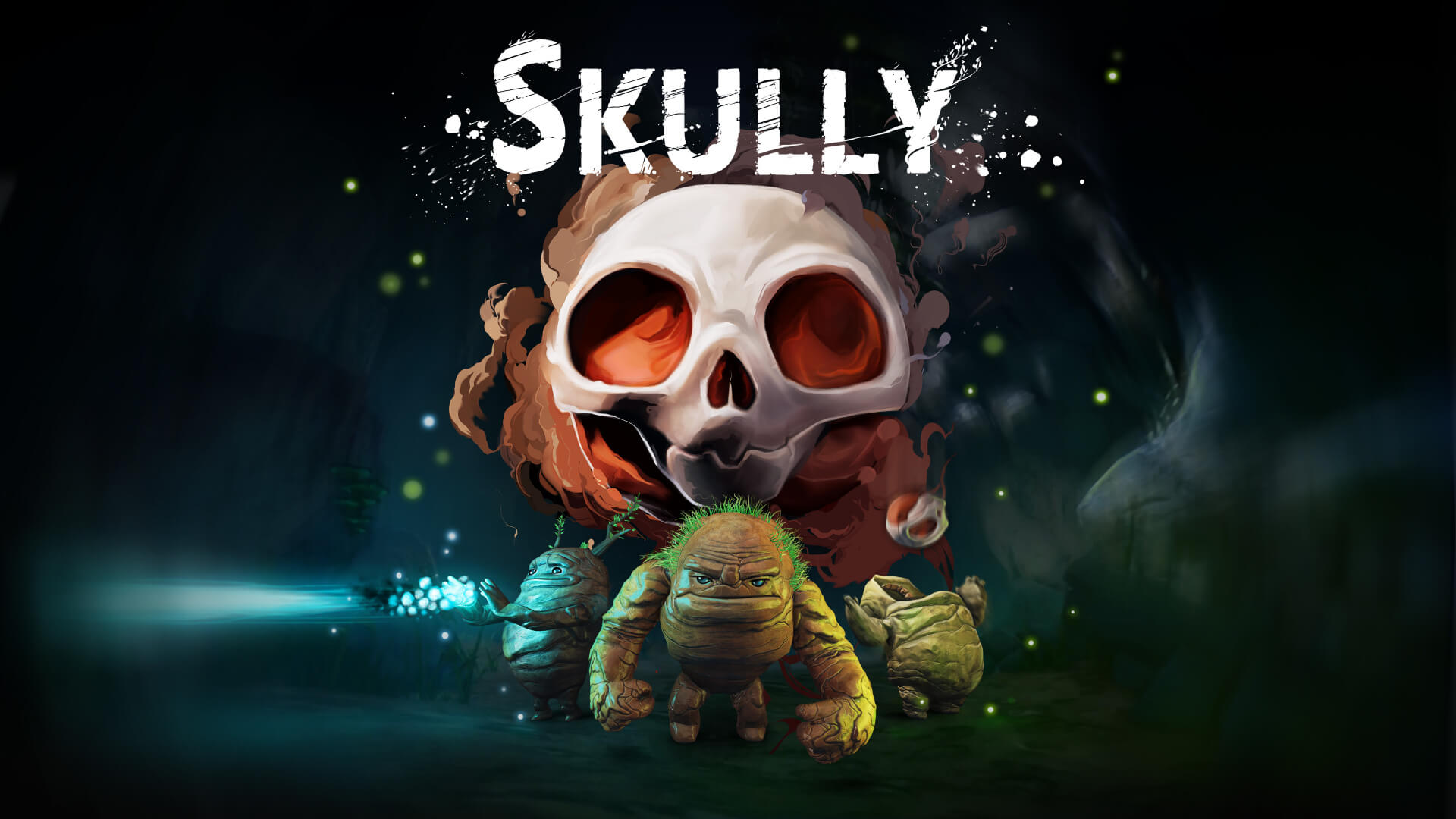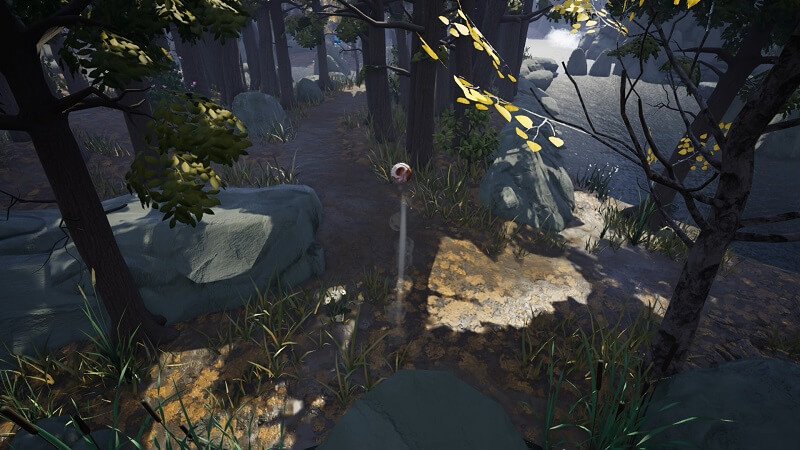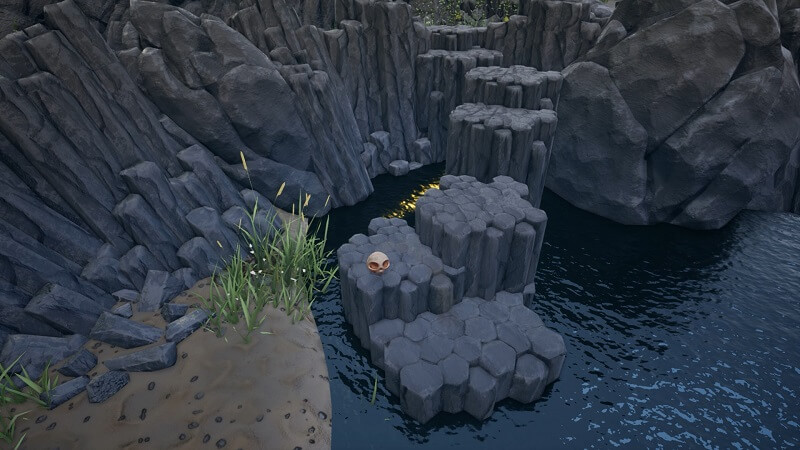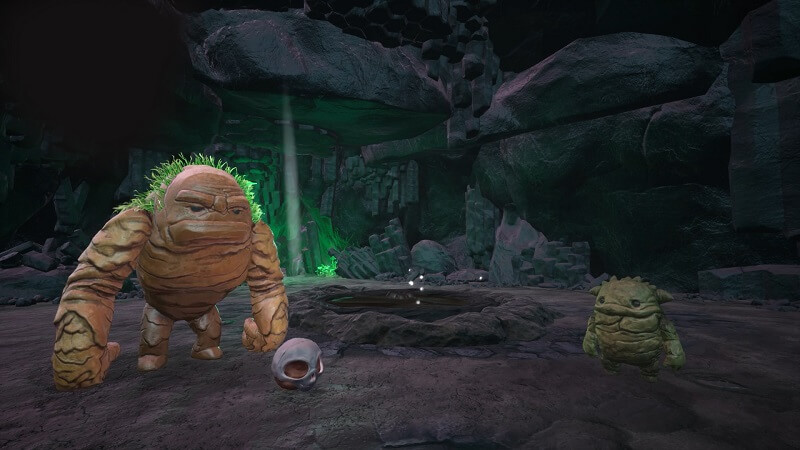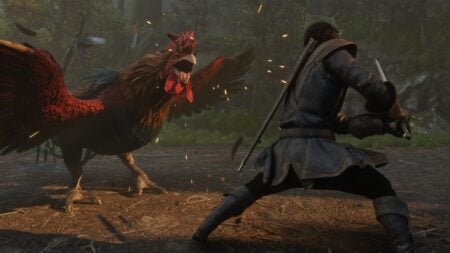Title: Skully
Developer: Finish Line Games
Publisher: Modus Games
Genre: Adventure Platformer
Available on: PC, PS4, Xbox One, Nintendo Switch
Version Tested: PC
Official Site: www.modusgames.com
Release Date: August 4, 2020
3D adventure platformers have been taking the gaming world by storm, and are quickly becoming some of my favorite titles. The speed, fluidity, and charm they can provide are astounding, making every minute of play a joy. A Hat in Time is a prime example of that, offering an adorable platformer with heaps of content and charm. That’s what gravitated me towards Skully, an adventure platformer where you roll around as a skull. Your goal is to save a massive island from a brewing war between four siblings (conveniently the four elements).
Aesthetically Bland
When you first see Skully, I’ll admit it doesn’t look too appealing. The backdrop looks like it’s made of clay, even if they’re meant to be different scenery like rocks and sand. With that in mind, you won’t be surprised by the art direction. It does achieve its purpose though. Most of the areas feel distinct in their biome choice and way things are laid out. From the swampy waters below to the jagged cliffs above, there are enough varying landscapes to make the game feel entertaining enough. I just wish there was more detail put into the objects. There was never a setpiece that wowed me, which made the experience duller than it could’ve been.
This is thankfully supplemented by Skully’s great sound design. While much of the scenery has the appearance of clay, the sounds they make are accurate and satisfying. Every roll along flat rocks, sand, and grass all sounds different, immersing you into the world that little bit more. The same goes for long drops and jumps, which have the thud you’d expect. Only helping that is a weel composed soundtrack, done with tones that compliment the story beats. There are upbeat songs during a hopeful journey, intense beats during timed sections, and somber melodies for when the story isn’t in such a great place. It all helps convey emotions well.
Skully’s Storybook Quality Writing
Unfortunately, those great songs can’t be fully utilized. Skully’s story is nothing more than mediocre, with every event being seen from a mile away. Even the main twist was so easy to predict that when it happens, you feel nothing. The actual story written here isn’t that bad mind you, with the journey being a good one that had some thought put into it. It just can’t hold that weight that it should when it’s all too predictable. It’s ironically enough equivalent to the game’s premise of being a storybook, but one you’ve read before.
The writing shares that level of mediocrity in Skully. Jokes often come across as bad to the point of hilarity, but obviously not to the developer’s intentions. The dialogue between each of the characters rarely has any depth to it, and instead comes across as cheesy when trying to be funny. This is apparent during the point of a sibling talking to another named Brent. They make it clear that Brent has a few screws loose, but then they spend several chapters reinforcing the fact that he does. This poor dialogue makes the levels where the characters finally stop talking a relief more than anything.
Rolling Through Skully’s Puzzles
Which brings us to the main point of Skully, being the rolling itself. For the most part, this is implemented in a way that makes sense and is satisfying. Hitting tight turns as Skully while going high speeds feels right, making for adventures that are enjoyable and exhilarating. The same goes for the golem forms you can take on which, while slowing the speed a bit, offer puzzles to shake things up. One of the primary issues though comes in the difficulty of said puzzles. There wasn’t a puzzle that I didn’t know how to do within the first 30 seconds of entering, making them glossed over quickly. Not even in the final chapters was I challenged.
Where the challenge comes instead is rather frustrating, that being the controls. During specific jumping puzzles (especially precise ones), Skully feels too fast for his own good. He’s very imprecise, leading you to panic and fail jumps constantly. This type of difficulty takes from the challenge and instead provides something frustrating which never gives up. I wouldn’t doubt that, when put side by side, I died more from imprecise controls than I did my own mistakes. This is true of both controller and keyboard play, despite the game recommending a controller.
Thankfully though, it does still manage to be an enjoyable experience. Running through levels at fast speeds and making jumps just right feels satisfying, especially when you nail new mechanics thrown at you. That’s helped by these mechanics being introduced consistently, making the various chapters unique. It’s clear that when it came to game design, the developers knew how to make things feel fresh despite the game being basic by design. That much, compared to other games like it, deserves praise.
Conclusion
Verdict: Skully offers some great gameplay that’s satisfying when done right, and gives plenty of uniqueness throughout its five-hour run. This, combined with some wonderful sound design, give Skully some solid ground to work off of. Despite that, I can’t help but feel there could’ve been much more done here to improve things, from better writing to more effort in the art and controls. Some more time put into those would’ve made the game much better, and more worth that runtime. Still, if you’re a fan of adventure platformers, Skully is a game you’ll likely walk away from with enjoyment, even if that’s not pleasantly surprised enjoyment.
[review]

